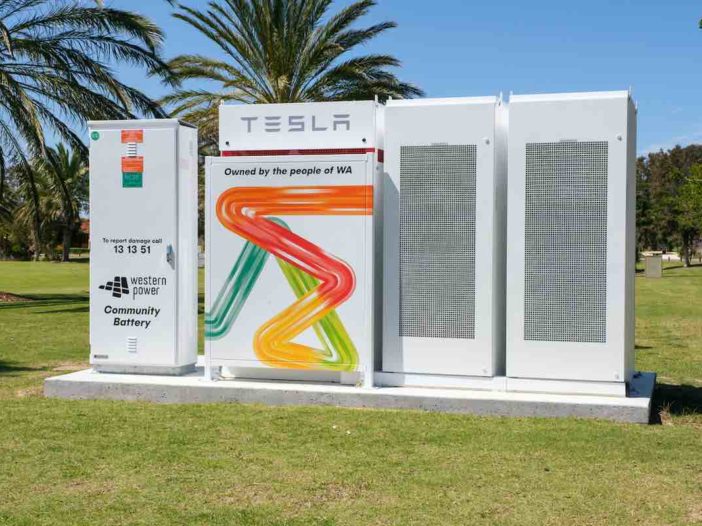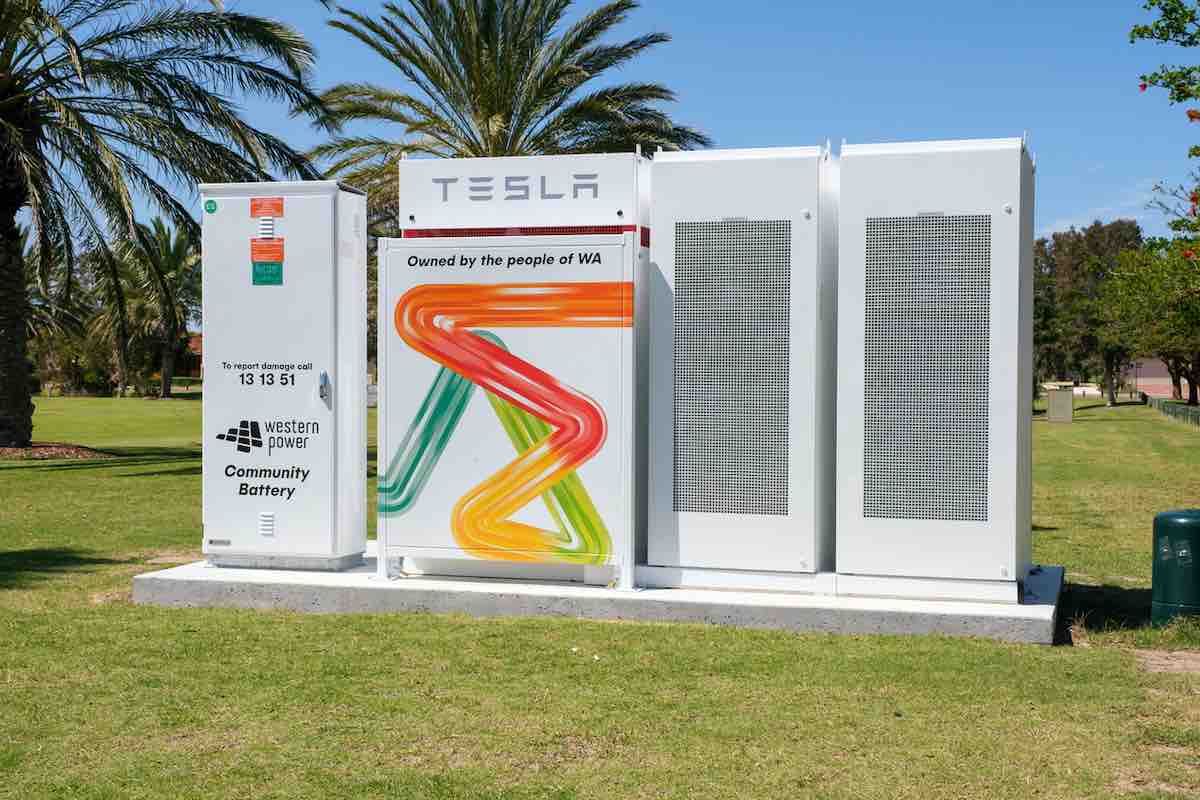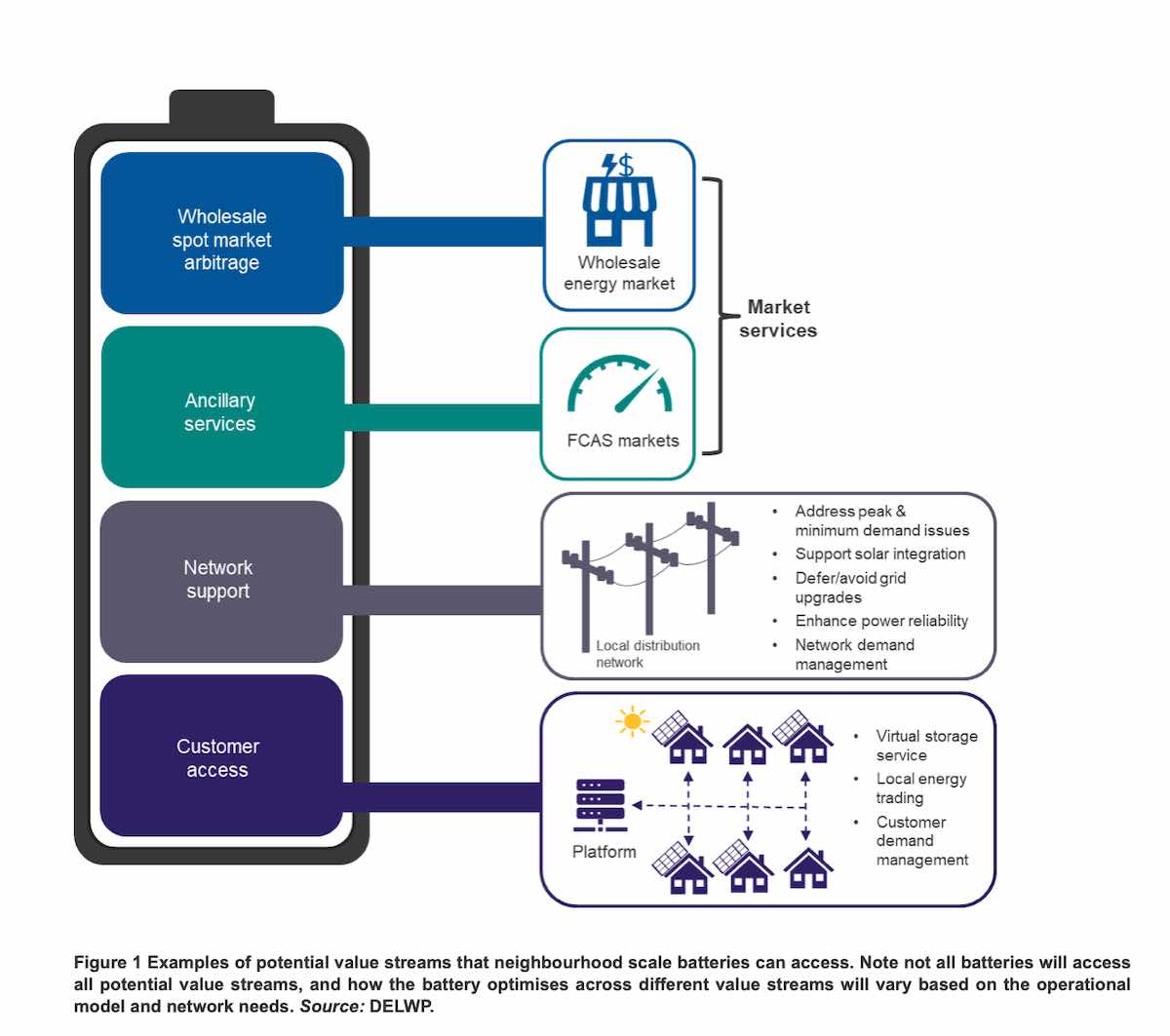

The Victorian government has unveiled plans to fund a series of “neighbourhood-scale” battery demonstration and pilot programs, to help unlock the role shared batteries can play in Victoria’s rapidly transitioning grid.
The $3 million Neighbourhood Battery Initiative (NBI) was announced as part of the Labor Andrews government’s broader new energy technologies sector strategy, and launched alongside an invitation for submissions to an NBI Consultation Paper.
The scheme hopes to kickstart a pipeline of community battery projects by funding scoping, feasibility and business case development; technical, operational, legal/contractual and regulatory advice and services; capital funding for battery deployment; and evaluation studies.
The government said proposed projects would ideally range in size from 100kW to 5MW (it did not specify hours of storage), would be connected in front of the meter, and could be owned by electricity distribution businesses or third parties like community energy groups, electricity retailers, or local governments.
“A key advantage of neighbourhood scale batteries is that they can participate in multiple value streams and provide a wide range of social, economic and technical benefits,” the NBI consolation paper says.
“The Neighbourhood Battery Initiative provides an opportunity to support trials of different tariff arrangements to understand how they shape the behaviour of participating customers, battery feasibility and operation, as well as equity considerations associated with new tariff models.”
As the consultation paper notes, the benefits of shared storage are already being tested – and even realised – through various schemes and pilots that are already being rolled out on the National Electricity Market, as well as on the Western Australia grid.
For network companies, in particular, community batteries are presenting themselves as a quick and ready fix to grid “congestion” issues being experienced in areas where large amounts of rooftop solar have been installed.
A recent Victorian trial, a joint venture between DNSP CitiPower and the not-for-profit Yarra Energy Foundation, is testing a model of community battery ownership that will provide benefits to both the network and customer by acting as a “solar sponge” in rooftop PV heavy neighbourhoods.
And in Western Australia, the state’s third and largest-yet network-led community battery trial was announced last month, offering up to 600 solar households access to shared or “virtual” energy storage as well as the opportunity to “bank” their shared storage.
In Victoria’s NBI, a first stream of funding will provide up to $150,000 for projects that develop feasibility studies and business cases for battery trials, and/or commission technical, regulatory, legal and/or contractual advice or services to support the planning and implementation of a battery.
A second stream, focused on implementation-ready projects, will supply funding of up to $800,000 for the implementation of a neighbourhood scale battery trial and projects that demonstrate the ability to access multiple value streams.
In its consultation paper, the government says the initiative hopes to gain insight into the full range of benefits that neighbourhood-scale batteries can provide, to overcome some of the barriers to their deployment, and to drive necessary regulatory reform.
One of the key issues, as the paper notes, is that neighbourhood-scale batteries will need to manage multiple contractual relationships, depending on their ownership and operational model.
This may include relationships between the battery owner, distribution business, retailer, participating customers and energy platform provider. Who gets the benefits, and how value streams are accessed, can also be complicated.
“Trade-offs need to be recognised – prioritising one value stream may limit the ability to fully access another value stream,” the paper says.
“Distribution businesses can own neighbourhood scale batteries for the purpose of providing network support, but cannot use them to provide market services (e.g., wholesale energy and ancillary services).
“They may be able to lease battery capacity to a retailer for this purpose, with an appropriate waiver from the Australian Energy Regulator. Distribution businesses can also pay third party owned batteries for network support.
“Third parties can own neighbourhood scale batteries and provide market services through a retailer or appropriate registered market participant. To provide network services, a network support contract needs to be in place with the relevant distribution business.”
The government says applications for funding from the NBI – as well as submissions to the Consultation Paper – are now open, until 5pm, 11 April 2021. Successful recipients will be announced in May 2021.
Stakeholders can respond to the Consultation Paper via the Engage Victoria website, through either a survey or a written submission, and may be invited to participate in individual meetings to explore ideas further.

Sophie is editor of One Step Off The Grid and deputy editor of its sister site, Renew Economy. Sophie has been writing about clean energy for more than a decade.



